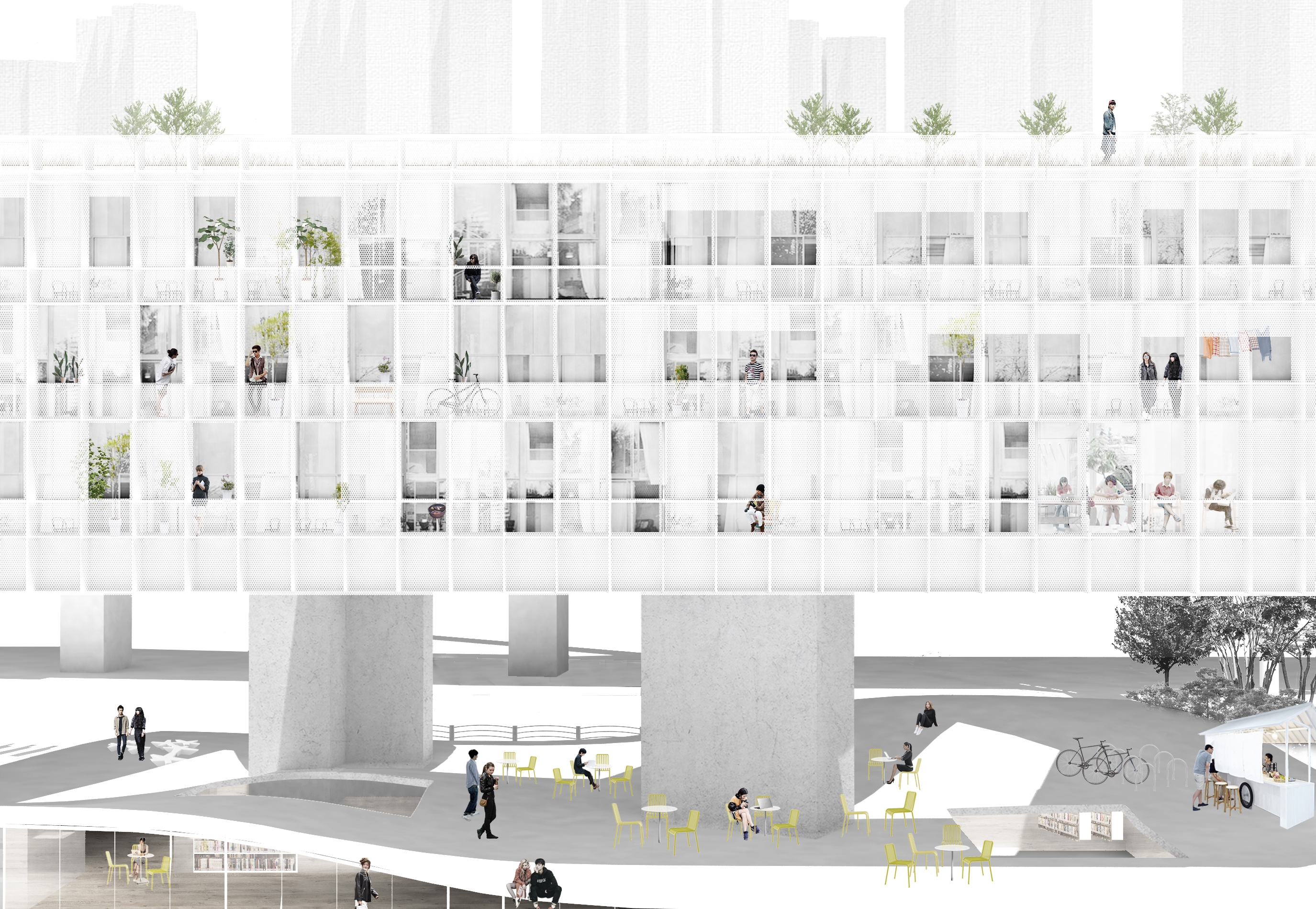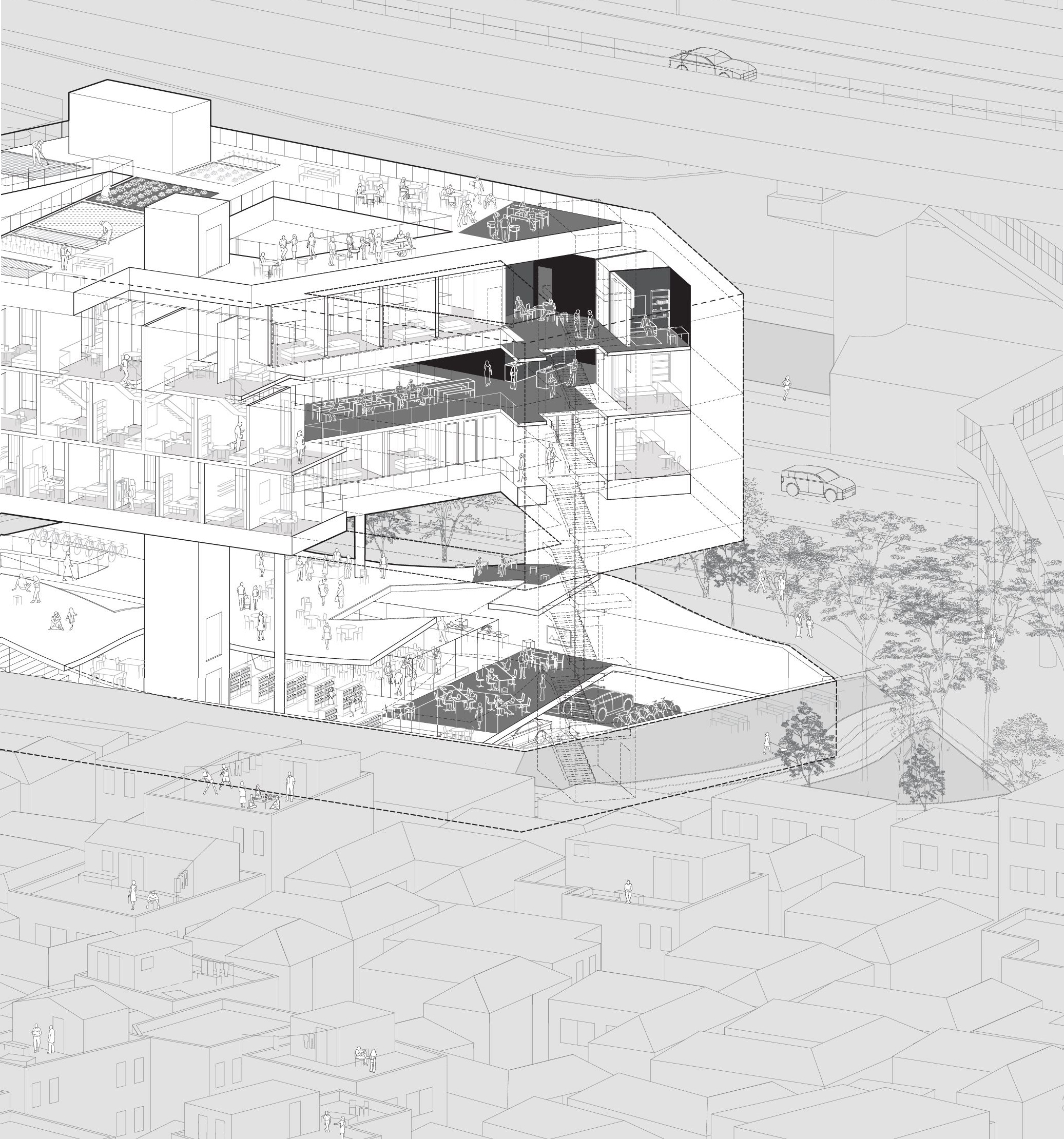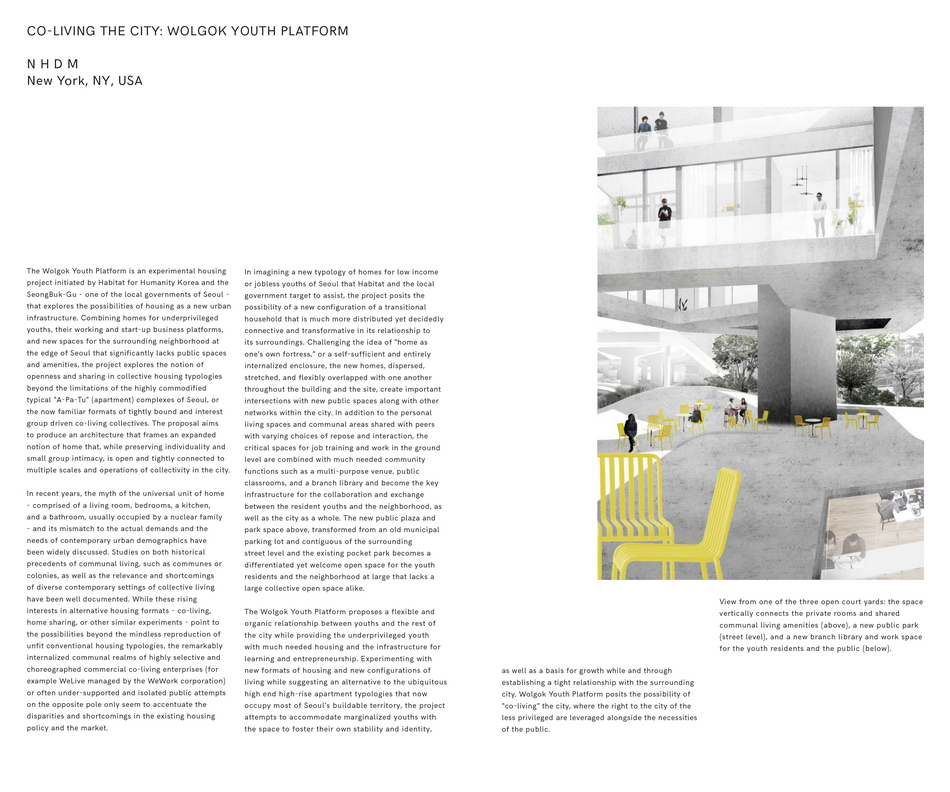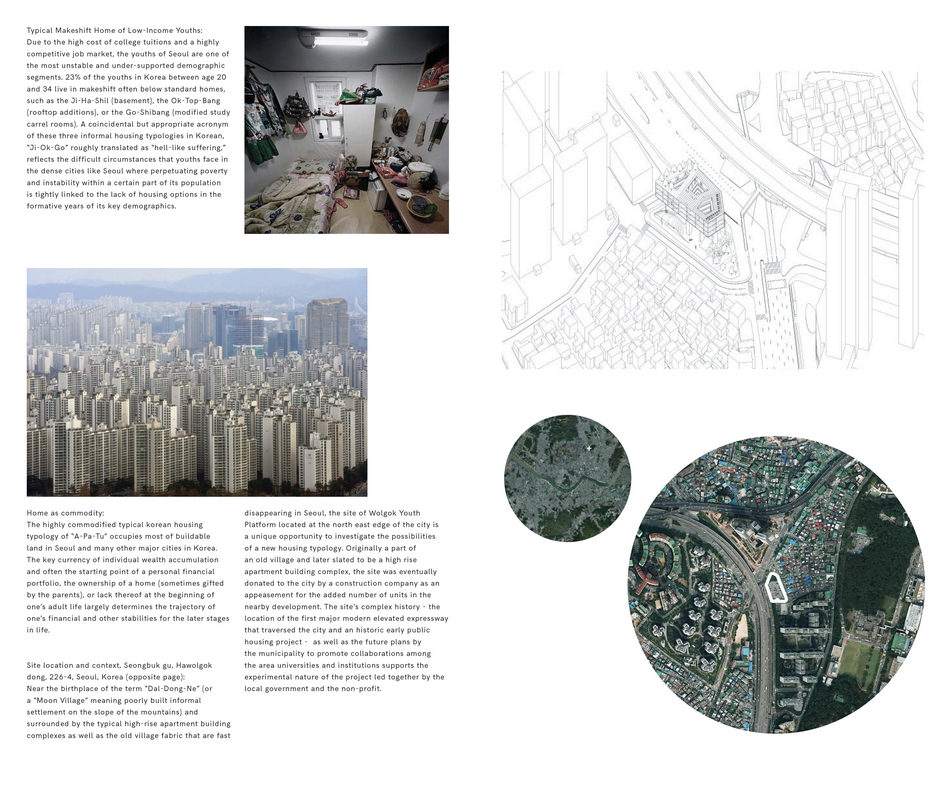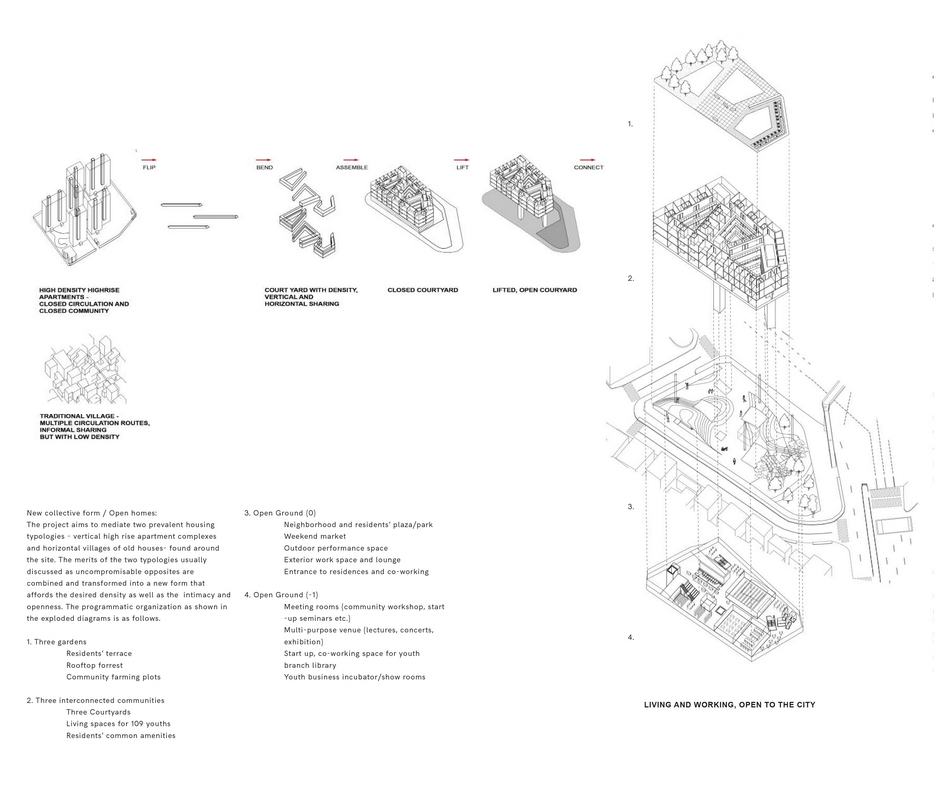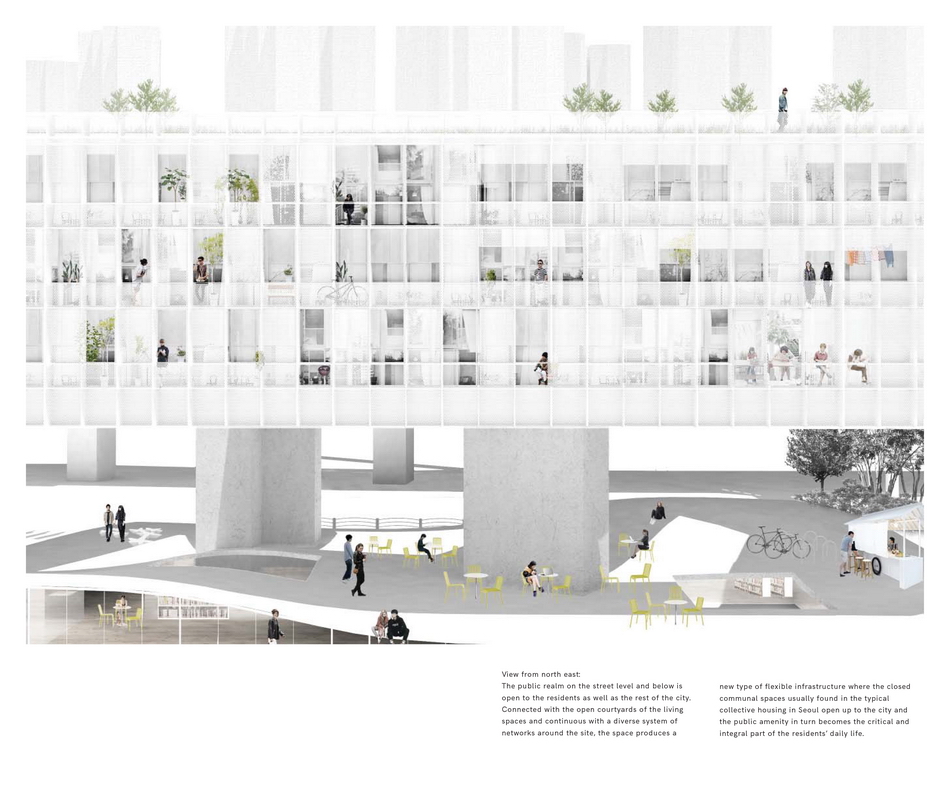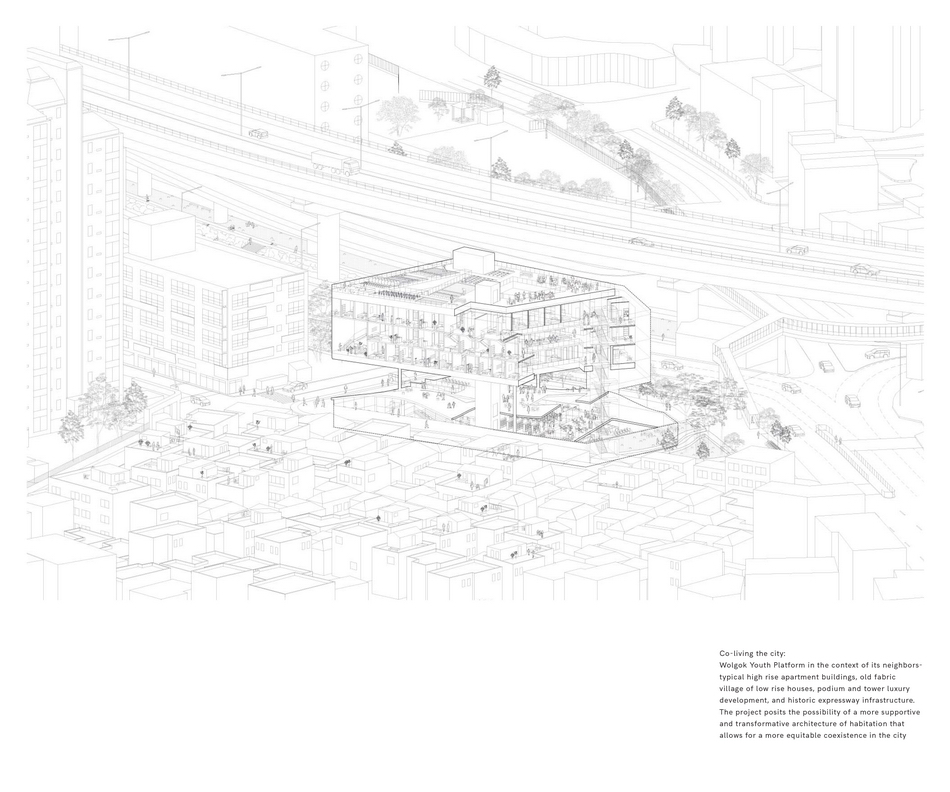WOLGOK YOUTH PLATFORM
The Wolgok Youth Platform is an experimental social housing project initiated by Habitat for Humanity Korea and the SeongBuk-Gu - one of the local governments of Seoul - that combines the homes for low-income youths, their job training and start-up business platforms, and new public spaces, such as a branch library and a park, for the surrounding neighborhood. The project explores the notion of openness and sharing in collective housing typologies beyond the limitations of the extremely commodified highrise apartment complexes of Seoul, while aiming to frame the expanded concept of home that, while preserving individuality and intimacy, is open and tightly connected to the multiple scales and operations of the city. The critical spaces for the resident youths’ work and learning are combined with much needed community functions including a branch library and community meeting rooms and become the key infrastructure for the collaboration and exchange between the resident youths and adjacent communities, universities, and businesses. The new public park under the lifted volume transformed from an old surface parking lot becomes a new local common open to everyone. The project provides the marginalized youths of Seoul with much needed housing and a firm basis for growth while establishing productive and transformative relationships with the surrounding city.
Due to the high cost of college tuitions and a highly competitive job market, the youth of Seoul are one of the most unstable and under supported demographic segments in the city. Despite the booming economy of the country and the capital, 23% of the youths in Korea between age 20 and 34 live in informal, makeshift, often below standard homes residing in the basement, illegal rooftop additions, or even in modified study carrel rooms. These statistics reveal the shortcomings in the highly commodified housing market and hard-to-overcome circumstances that the youths from low-income family face in the cities like Seoul where the cycle of inherited poverty and instability is perpetuated by the lack of housing options in the formative years of its key demographic. The project utilizes the unique opportunity afforded by the collaboration between a nonprofit and the local government to produce an architectural prototype and an exemplary case for a new alternative housing for the youth, addressing the immediate needs of housing shortage (with flexible co-living units) and integrating the plans for a long term impact (provision of programs for learning and working). Providing spaces for exchange and collaboration (integration of public amenities and forums) while proposing concrete strategies of collaborative implementation (use of public land and preservation of previous use) Wolgok Youth Platform explores the possibilities of housing as a new urban infrastructure.
